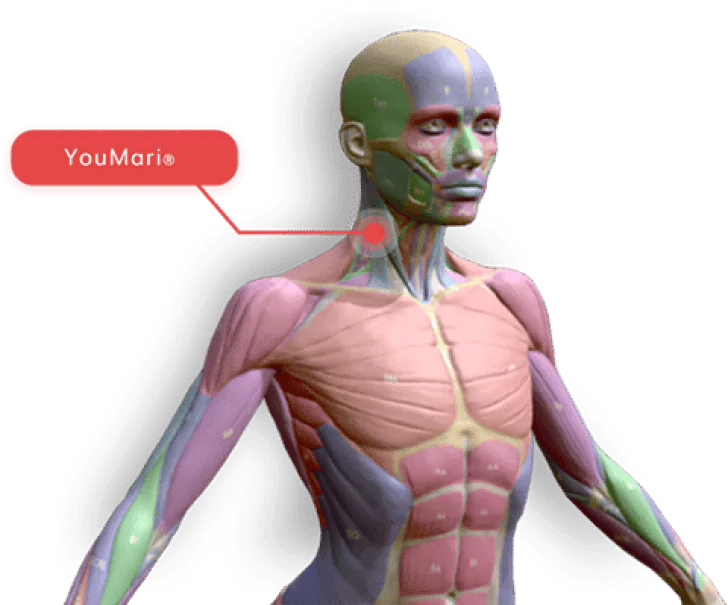Discover advanced, non-invasive solutions to PERMANENTLY restore focus, improve memory, and enhance cognitive function—delivered in our clinics, at home, or onsite at your workplace.
Brain fog is a term used to describe feelings of mental fatigue, forgetfulness, difficulty concentrating, and lack of mental clarity. While not a medical condition, brain fog is often a symptom of underlying issues such as inflammation, hormonal imbalances, nutrient deficiencies, or chronic stress.
Left untreated, brain fog can interfere with daily life, work, and relationships, making it essential to identify and address its root causes.


Brain fog can result from various factors, including:
We specialize in addressing brain fog through a comprehensive, personalized approach. Using advanced diagnostics, we uncover the root causes of cognitive dysfunction and create a tailored plan to improve focus, memory, and overall mental clarity.
Our regenerative therapies and precision medicine techniques reduce inflammation, optimize brain health, and promote long-term cognitive function.
Therapies Include:

Our Regenerative Therapies our Not the Alternative, they are the
BEST CHOICE
We are committed to personalizing treatment plans based on what is best for every individual’s UNIQUE circumstances to include symptoms, budget, lifestyle, and goals. Conservative (non-pharmaceutical) care is often effective in resolving the symptoms of brain fog.

We will review your health history, symptoms, and current treatments to help determine the severity of your condition. We may recommend additional testing and analysis to get a full picture of potential therapies personalized to you.
If your condition qualifies for conservative care options, we will present a treatment plan that includes only those therapies proven to be effective in treating your condition. This may include red light therapy, hormone balancing, nootropics, testing for common brain-based viruses, addressing inflammation and other therapies to resolve issues that might be limiting mobility and ability to be active. You will be provided with treatment plan options and timelines with transparent out of pocket costs to you.

Experience hands-on care and advanced regenerative therapies in a relaxing, state-of-the-art environment.
Continue your healing journey with easy-to-use devices designed for at-home therapy.
Bring regenerative medicine to your workplace, improving employee health and productivity.
These are emerging treatments for various conditions, including brain fog. Here’s how they work:
It can play a major role in managing brain fog, particularly when hormonal imbalances are a contributing factor. Here’s an overview:
For Women: Bioidentical Hormone Replacement Therapy (BHRT) can help manage mood swings and depression, especially during menopause or perimenopause. Estrogen has mood-stabilizing effects and can influence neurotransmitter activity.
For Men and Women: Low testosterone levels can be linked to depression and mood disturbances. Testosterone replacement therapy may improve mood and alleviate depressive symptoms especially energy levels and the ability to focus.
Thyroid Imbalances: Hypothyroidism (low thyroid hormone) can contribute to depression. Proper thyroid hormone replacement can help stabilize mood and improve depressive symptoms.
Cortisol: Imbalances in cortisol, the stress hormone, can affect mood. Adrenal hormone therapy or stress management techniques can sometimes help in managing anxiety.
Dehydroepiandrosterone (DHEA): This hormone can affect mood and energy levels. Supplementation may be considered in cases of deficiency.
Overall, hormone therapy may be beneficial for some individuals with anxiety and depression, particularly when hormonal imbalances are a key factor. It should be considered as part of a comprehensive treatment plan.
Using 99.99% pure molecular hydrogen gas, H₂ inhalation therapy supports cellular healing, reduces oxidative stress, and promotes overall wellness.
Molecular Hydrogen Therapy involves administering hydrogen gas (H₂) to leverage its antioxidant and anti-inflammatory properties, potentially benefiting mental health. (https://www.mdpi.com/1420-3049/28/23/7785)
Mechanism:
Antioxidant Properties: H₂ selectively neutralizes harmful free radicals, reducing oxidative stress associated with neurodegenerative diseases. (https://hydrogen4health.com/the-science-behind-hydrogen-gas-therapy-unveiling-its-mechanisms-and-health-effects
Anti-Inflammatory Effects: H₂ inhibits pro-inflammatory cytokines, potentially alleviating inflammation linked to mood disorders.
Potential Benefits:
Neuroprotection: H₂ has shown promise in protecting brain cells from oxidative damage, which may support cognitive function.
Mood Enhancement: By reducing oxidative stress and inflammation, H₂ may positively influence mood regulation. (https://healthpsychologyresearch.openmedicalpublishing.org/article/35468-effects-of-hydrogen-water-and-psychological-treatment-in-a-sample-of-women-with-panic-disorder-a-randomized-and-controlled-clinical-trial)
Red Light Therapy (or Low-Level Laser Therapy) uses specific wavelengths of light to reduce inflammation and support cellular function, which may benefit mental health.
Red light therapy may improve cellular function and reduce inflammation, potentially benefiting mood regulation and mental health.
Bioidentical Hormone Therapy involves using hormones identical to those naturally produced by the body to address hormonal imbalances that can affect mood.
Balancing hormones with bioidentical therapy can improve mood stability and potentially alleviate symptoms of depression and anxiety.
For Women: Bioidentical Hormone Replacement Therapy (BHRT) can help manage mood swings and depression, especially during menopause or perimenopause. Estrogen has mood-stabilizing effects and can influence neurotransmitter activity.
For Men and Women: Low testosterone levels can be linked to depression and mood disturbances. Testosterone replacement therapy may improve mood and alleviate depressive symptoms, especially energy levels and the ability to focus.
Thyroid Imbalances: Hypothyroidism (low thyroid hormone) can contribute to depression. Proper thyroid hormone replacement can help stabilize mood and improve depressive symptoms.
Cortisol: Imbalances in cortisol, the stress hormone, can affect mood. Adrenal hormone therapy or stress management techniques can sometimes help in managing anxiety.
Dehydroepiandrosterone (DHEA): This hormone can affect mood and energy levels. Supplementation may be considered in cases of deficiency.
Overall, hormone therapy may be beneficial for some individuals with anxiety and depression, particularly when hormonal imbalances are a key factor. It should be considered as part of a comprehensive treatment plan.
Shockwave Therapy (Extracorporeal Shock Wave Therapy) primarily targets musculoskeletal conditions but has shown potential in reducing inflammation and supporting mental health.
While primarily used for physical conditions, ESWT may help reduce inflammation and improve overall well-being, potentially supporting mental health.
Inflammation Programs focus on reducing systemic inflammation through diet, supplements, and lifestyle changes, which can help alleviate symptoms of brain fog.
Reducing chronic inflammation through targeted interventions can improve mood and reduce symptoms of brain fog.
Sleep Studies focus on improving sleep quality, which is crucial for mental health and can significantly impact depression and anxiety levels.
Improving sleep quality can enhance mood, reduce anxiety, and support overall mental health.
Nutrigenomics examines how genetic variations affect individual responses to nutrients, allowing for personalized nutritional interventions that may support mental health.
Nutrigenomics can guide personalized dietary recommendations based on genetic profiles to improve mood and reduce symptoms of brain fog.
Environmental Toxins Tests assess exposure to environmental toxins, which can impact mental health.
Reducing exposure to environmental toxins may alleviate symptoms of depression and anxiety by minimizing their impact on overall health.
Pharmacogenomics studies how genetic differences influence individual responses to medications, enabling personalized treatment plans for depression and anxiety.
It helps tailor antidepressant and anxiolytic medications to individual genetic profiles, improving efficacy and reducing side effects.
For managing brain fog, these integrative and regenerative therapies offer diverse benefits:
These approaches can be integrated into a comprehensive treatment plan to address various aspects of brain fog, enhancing overall mental health and well-being.
Brain fog refers to feelings of mental fatigue, forgetfulness, lack of focus, and reduced mental clarity. It can feel like a “cloudy” or sluggish mind, making it difficult to concentrate or process information efficiently.
Brain fog can stem from various root causes, including:
PBM uses specific wavelengths of light to penetrate deep into tissues, enhancing mitochondrial function and energy production (ATP) in brain cells. It reduces inflammation, supports neural repair, and improves overall cognitive function.
Hydrogen inhalation therapy combats oxidative stress by neutralizing free radicals in the body. It reduces systemic inflammation and promotes a healthier environment for brain cells, enhancing focus and mental clarity.
Nootropics are supplements or compounds that enhance brain function by:
Hormone imbalances, particularly cortisol, thyroid hormones, and sex hormones, can disrupt cognitive function. By using the MIT AI to analyze hormone levels and biochemistry, we create personalized hormone optimization plans to restore balance and improve mental clarity.
The MIT AI technology analyzes biochemical and hormonal markers to uncover the root causes of brain fog, such as inflammation, deficiencies, or imbalances. This precise diagnostic tool allows us to design personalized treatment plans tailored to each individual’s needs.
The gut-brain axis plays a critical role in cognitive function. An unhealthy gut microbiome can lead to inflammation, neurotransmitter imbalances, and nutrient deficiencies, all of which contribute to brain fog. Improving gut health can significantly enhance mental clarity and focus.
Personalized supplementation addresses specific nutrient deficiencies that may impair brain function. Essential nutrients, such as B vitamins, magnesium, omega-3 fatty acids, and antioxidants, are tailored to each individual’s needs for optimal cognitive health.
Yes, all our therapies are non-invasive, clinically validated, and designed to address the root causes of brain fog without harmful side effects.
While results vary, many patients experience noticeable improvements in focus, memory, and mental clarity within 2–4 weeks of starting therapy. Consistent treatment leads to sustained progress over time.
Yes, our therapies not only improve current symptoms but also promote long-term brain health by addressing inflammation, oxidative stress, and other root causes. This helps prevent future cognitive decline.
Genetic testing identifies predispositions that affect neurotransmitter production, hormone regulation, and detoxification pathways. This information allows us to create highly personalized strategies to optimize brain function.
Absolutely. Our therapies are integrative and designed to complement existing treatments, such as lifestyle changes, medications, or traditional cognitive therapies, to enhance their effectiveness.
Poor sleep quality disrupts cognitive function and contributes to brain fog. By addressing underlying sleep issues, such as hormonal imbalances or environmental factors, we help restore proper sleep cycles and improve mental clarity.
Yes, our treatments are ideal for anyone seeking to optimize cognitive performance, including professionals, students, and individuals experiencing burnout or stress-related brain fog.
Book a consultation with our team to assess your symptoms, uncover root causes through advanced diagnostics, and create a personalized plan to restore mental clarity and improve cognitive function.
See Plans & Pricing

Connect with us over our social platforms & find special deals for you!
© Copyright 2025. All rights reserved.